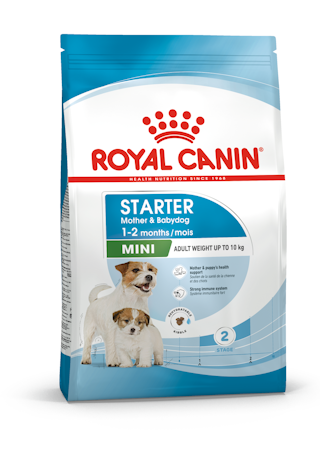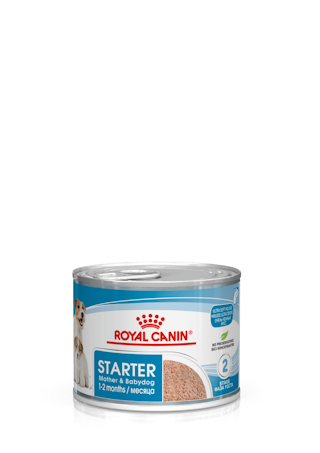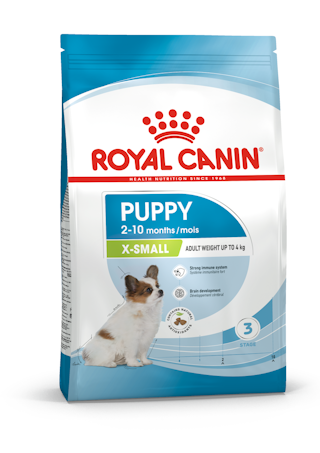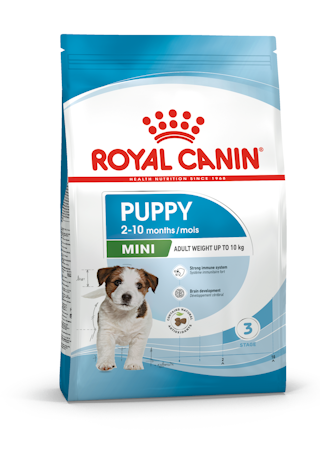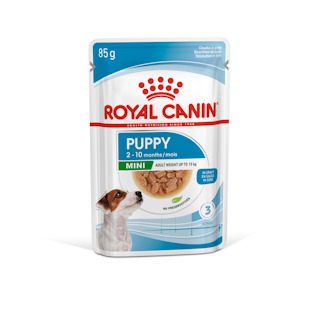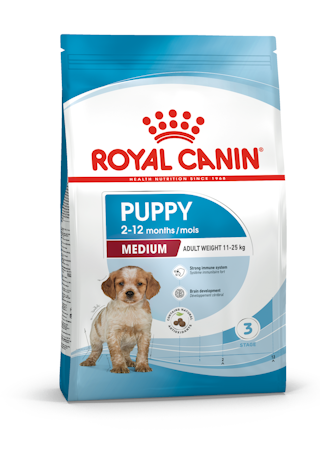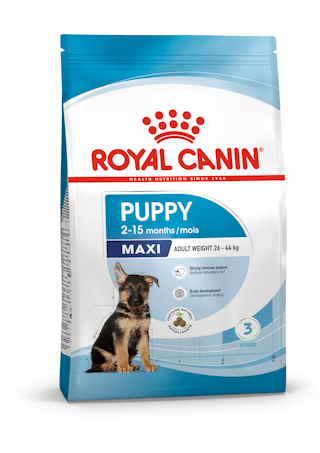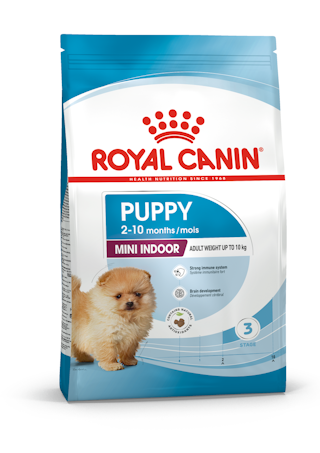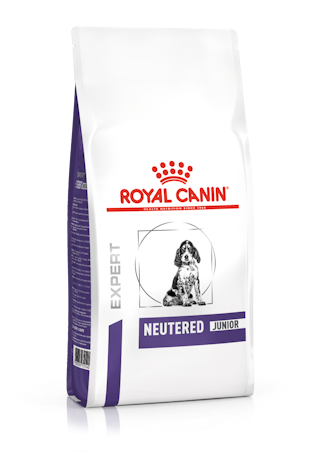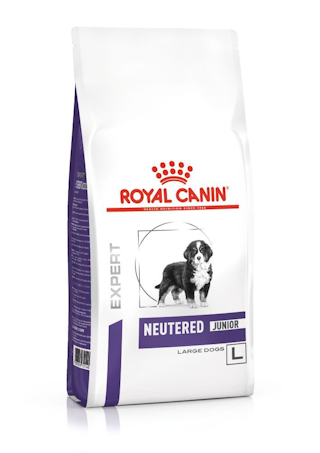3 Reasons Why Puppies Shouldn't Eat Adult Dog Food
Reason 1: Puppies Require Different Nutrients Compare to Adult Dogs
If you have experience taking care of a puppy, you will know very well that dogs grow at an astonishing speed, with their size appearing a bit larger every day. This rapid growth process can be divided into three stages: the neonatal period, weaning period, and growth period . During the growth process, all the organs and tissues of the puppy are actively developing, that is why they have a high demand of the nutrients that can support their development [1].
“Protein” and its smallest units, “amino acids,” play a crucial role in organizing muscles and bones. Besides, while dogs cannot synthesize essential amino acids (such as arginine and tryptophan) on their own, the dietary requirements for protein in puppies are more stringent than in adult dogs [2] as they must obtain such nutrients from food.
In addition, “fat” and “minerals” are also important sources of nutrition! “Fat” does not only provide twice the energy of protein and carbohydrates, but also aids in the absorption of fat-soluble vitamins, facilitating the overall growth of the body. Although “minerals” do not provide energy, their moderate intake is crucial for puppies, especially the precise amounts of calcium and phosphorus which is beneficial to the development of robust bones and teeth [2][3].
Explaining Essential Nutrition for the Health of Puppies:https://www.royalcanin.com/hk/en_hk/dogs/puppy/puppy-feeding-and-nutrition/key-nutrients-for-puppies
Reason 2: The Calorie Needs between Puppies and Adult Dogs is Not the Same
The newly born puppy, brimming with vitality and curiosity about the world, wakes up every day with boundless energy ready to explore its surroundings. Therefore, growing puppies require more calories than adult and senior dogs in order to support their development. Additionally, due to their smaller appetite compared to adult dogs, they need dog food with a higher energy density to meet their daily activity levels.
It's important to note that, despite the irresistible cuteness of puppies, we must resist the urge to overfeed them with dog food or treats. The amount a puppy should eat in a day depends on its breed, the feeding guidelines on the packaging, and the veterinarian's recommendations. Generally speaking, it is not advisable to feed puppies with snacks. Instead, small amounts of dry or wet food can be used as rewards, but these must be factored into the overall daily calorie intake to prevent puppies from consuming excessive calories, leading to obesity-related health issues [4].
Reason 3: The Size of a Puppy's Oral Cavity and Bite Force Differs from That of an Adult Dog
During the growth period, the oral cavity size and bite force of a puppy are not yet comparable to that of an adult dog. Feeding puppies with adult dog food may lead to difficulties in eating, digestion issues, and even injuries. Therefore, choosing pet food specifically designed for the oral cavity size and tooth structure of puppies, such as kibble with smaller particles and a softer texture is important. This helps to ensure that puppies can enjoy their meals happily and safely.




When is the right time for puppies to switch to adult dog food?
The length of the growth period varies among different breeds and sizes. In general, puppies take approximately 8-18 months to transition from birth to adulthood, with larger breeds requiring a longer growth period. Therefore, the time for different dogs to switch from puppy food to adult food cannot be generalized.
Must dogs wait until they are fully grown to eat adult dog food? Absolutely! In order to support the development of various bodily functions, the nutritional needs of puppies are different from those of adults. To ensure the healthy growth of puppies, it is recommended to feed them puppy food as the primary diet until they are fully grown.
Pet owners can discuss with veterinarians the optimal time to switch from puppy to adult food and adopt a gradual transition to avoid digestive issues. Additionally, since a puppy's digestive system is not fully developed, it is advised to feed them multiple meals a day and gradually transition to two meals a day as they grow [5].
| Mini size | Small size | Medium size | Large size | |
| Average weight when fully grown | below 4kg | below 10kg | 11-25kg | 26-44kg |
| Growth period (from newborn to adulthood) |
8-10 months | 8-10 months | 12 months | 15 months |
How to Choose Food Suitable for Puppies?
In conclusion, the nutritional proportions, calorie content, kibble size, and texture required for puppies differ from those of adult dogs. Therefore, certified pet food should clearly indicate whether the product is formulated for the nutritional needs of ‘puppies’ or designed for the nutritional requirements of ‘adult dogs' on their packaging [6].
It is also crucial to pay attention to the differences in size and growth curves among breeds. Check whether the label on the packaging has specified their nutrition content for specific breeds or growth stages. Pet owners should also take these into consideration when selecting puppy food.
When puppies grow, specific nutrients are required for the healthy development of the brain, muscle and bone structure, organs, digestive system, and other bodily functions. It is recommended to feed puppies with food designed particularly for them until they reach adulthood. The nutritional intake during the puppy stage lays the foundation for good health in adulthood, ensuring the longevity of our beloved companions!
References:
¹ https://www.royalcanin.com/tw/dogs/puppy/neonatal-period
² https://www.petmd.com/dog/nutrition/can-puppies-eat-adult-dog-food
³ https://www.royalcanin.com/tw/dogs/puppy/puppy-feeding-and-nutrition/key-nutrients-for-puppies
⁴ https://www.royalcanin.com/tw/dogs/weight-management/healthy-portioning
⁵ https://www.royalcanin.com/tw/dogs/puppy/puppy-feeding-and-nutrition
⁶ https://www.akc.org/expert-advice/nutrition/best-dog-food-choosing-whats-right-for-your-dog/




